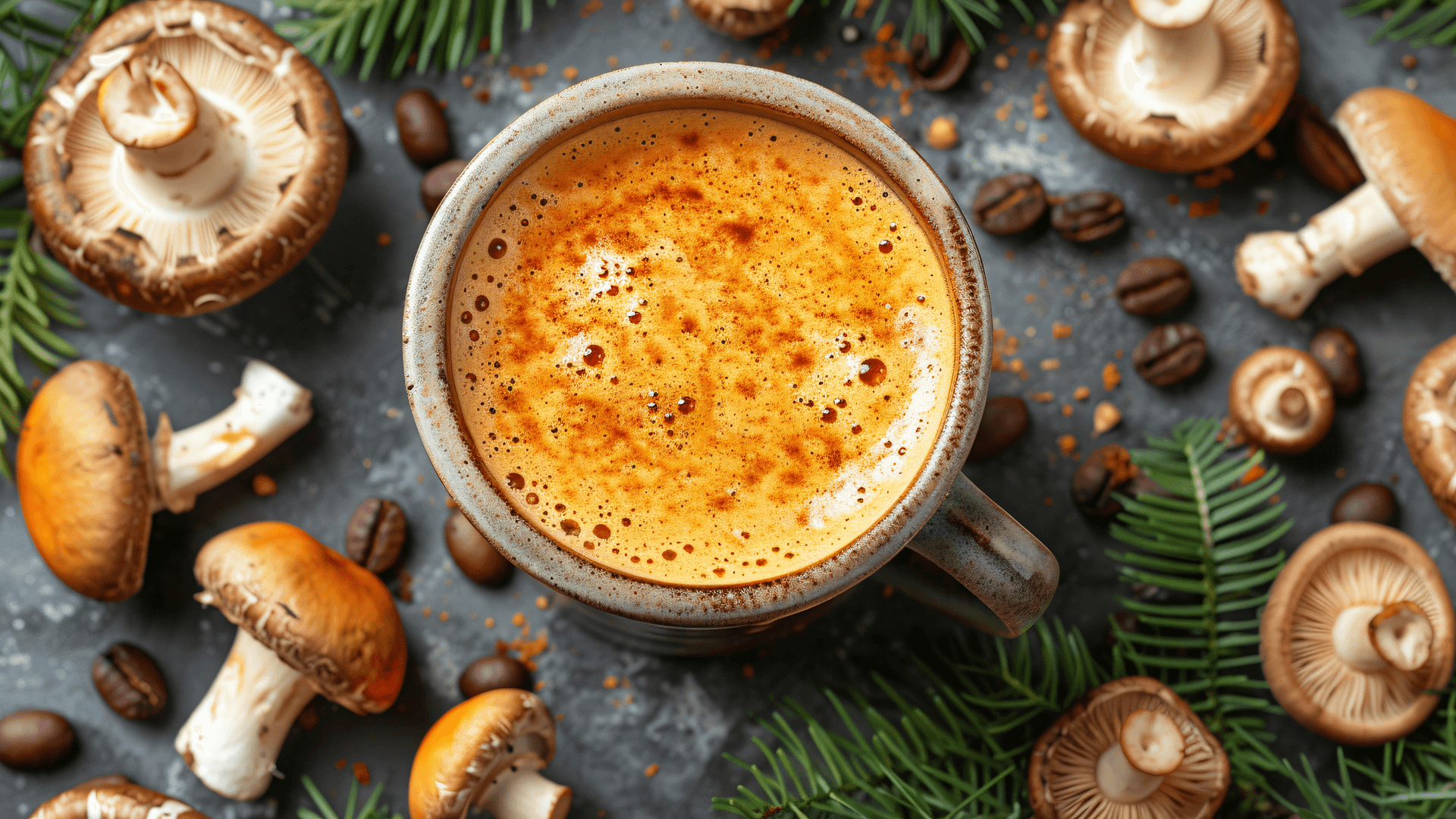Keeping an eye on estrogen levels might not be foremost on your mind, but you can be sure that estrogen dominance is something you don’t want or need. It’s surprisingly easy to find your estrogen levels higher than expected due to following the wrong diet and elevating the hormone level.
Progesterone is produced by the male testes and adrenal glands and is needed by males to produce testosterone. If your estrogen level is higher than your progesterone level, it’s known as estrogen dominance.
When you have a hormonal imbalance, you can experience several issues, such as lack of energy, mood swings, weight gain, anxiety, sleeplessness and sexual dysfunction.
Still, there are things you can do to reverse estrogen dominance naturally and a hormone imbalance, and it should start with your diet.
Understanding the Complex Relationship Between Diet and Hormone Levels
The intricate relationship between diet and hormone levels, such as estrogen, presents several challenges for researchers and healthcare professionals. Let's explore these complexities:
-
Complexity of Phytoestrogens: While certain foods contain phytoestrogens—plant compounds that can mimic estrogen—their effects are still under extensive study. These compounds often display varied influences on hormone levels, and results may differ based on individual biology and consumption patterns.
-
Interacting Variables: Beyond diet, a multitude of factors impact hormone levels. Genetics, stress, overall health, and environmental elements all intertwine with food choices, complicating the study of how exactly diet affects hormonal balance.
-
Individual Variability: Each person's reaction to dietary components can vary drastically. Genetic predispositions and metabolic differences mean that a one-size-fits-all approach is ineffective when analyzing dietary impacts on hormones.
-
Incomplete Understanding: Despite ongoing research, the scientific community is still unraveling the full extent of how diet influences hormones. Much remains unknown, making it difficult to draw definitive conclusions or provide universal dietary recommendations.
By acknowledging these challenges, we can gain a better appreciation for the complex dynamics at play and encourage a more personalized approach to dietary choices and hormonal health.
What foods cause high estrogen levels?
The relationship between diet and hormone levels, including estrogen, is complex. Phytoestrogens, compounds found in some plants, can have "estrogen-like" effects on the body. However, experts are still exploring this topic as it’s not fully understood. While dietitians recognize that food choices can influence hormone levels, it's important to remember that other factors like genetics, stress, overall health, and environment also play significant roles..
1. Alcohol
Not a huge surprise but regular consumption of alcohol can lower your testosterone levels and increase the estrogen in your system. If consumed in large amounts, it can also cause other issues such as weight gain, liver issues, and erectile dysfunction. The fact that it’s bad for your liver is a serious red flag, as the liver helps to break down estrogen.
2. Chocolate

Chocolate belongs to the “catechin” group, including berries and cocoa. It’s a phytoestrogen hormone made by plants that activate estrogen receptors in our bodies. Coffee is another one to limit as it’s also from the same food group.
3. Nuts and seeds
Nuts and seeds are usually on a priority list for healthy nutrition but are also abundant in phytoestrogens. Consuming them as part of a healthy diet is generally considered a good idea, but if you’re over-indulging, it’s probably a good idea to reduce your intake. Sesame seeds, brazil nuts, and flax seeds are exceptionally high in phytoestrogens.
Flaxseed, in particular, stands out due to its significant impact on hormone levels. High in phytoestrogens, flaxseed can influence your body's estrogen levels. A review of research from 2023 found that women who had gone through menopause—a time when estrogen levels decrease—were able to reduce their menopause symptoms by increasing their flaxseed intake. This highlights the potential benefits of incorporating flaxseed into the diet for hormone-related symptom relief.
However, if you're experiencing high estrogen levels, consider moderating your flaxseed consumption to maintain hormonal balance. Balancing your intake of these nutrient-rich seeds can help you harness their benefits without disrupting your body's natural hormone levels.
4. Dried Fruits

Dates, prunes and dried apricots have a high percentage of phytoestrogens which will help elevate the estrogen level in your system. Again, modest consumption of these should do you no harm whatsoever, but a high level of consumption could raise your estrogen level.
5. Dairy produce
Dairy products may be high on your list of essentials when establishing a balanced diet, but it’s essential to get the balance right, as consuming high amounts of dairy products can raise your estrogen level. Cow’s milk is rich in estrogenic compounds but will only cause an issue if consumed in very high amounts.
What foods flush out estrogen?
So we know the dangers of overindulging in the food listed above, but which are the foods that can get to work in our system and actively decrease estrogen levels?
Mushrooms
They’re not to everyone’s taste, but if you’re a fan, mushrooms are a great manager of estrogen levels as they’ve been found to increase testosterone levels in the body. Oyster and white button mushrooms are perfect for this, as they contain enzymes that actively reduce estrogen levels.
Vegetables

Vegetables should always be high on your dietary priority list, but certain types can be perfect for decreasing estrogen levels. Cruciferous vegetables such as Cauliflower, broccoli, and Brussels sprouts are incredible at reducing estrogen production as they contain chemicals with anti-estrogen effects and numerous other nutritional benefits.
Spices
Some spices have also been known to help to reduce estrogen. Top of the list is turmeric which contains curcumin; not only great for lowering estrogen, it has also been shown to increase testosterone in the body. It’s a spice that can be easily added to food and taken as part of a daily meal and by supplementation.
Fatty fish

Packed full of Omega-3 fatty acids, vitamin D and zinc, it’s hard to go wrong with salmon and mackerel. The nutrients in these fish types are essential for hormonal health and great for increasing testosterone and reducing estrogen.
Certain types of fruit
We’ve discussed the issues with consuming high qualities of dried fruits, but there are certain fruits that are perfect for helping get the hormone balance right when consumed in moderation. Avocados and pomegranates are rich in antioxidants, vitamins, and anti-estrogenic compounds. Having them around the house to reach for when you feel the need to snack will be one of the best ideas you’ve had.
What Are the Potential Effects of Soy on Estrogen Levels?
Soy is a rich source of phytoestrogens, which are plant compounds that can mimic the function of estrogen in the human body. These phytoestrogens are found in foods derived from the edamame bean, such as tofu, soy milk, tempeh, and roasted soy nuts. Additionally, soy is a key ingredient in many plant-based proteins.
How Soy Influences Estrogen
Phytoestrogens can bind to estrogen receptors in the body, which might help balance hormone levels. For some, this could have a mild estrogen-like effect, while for others, it might block natural estrogen, offering potential benefits such as reduced symptoms of menopause or lower risk of certain cancers.
Individual Reactions Vary
It's important to note that the impact of soy on estrogen levels can vary significantly from person to person. Some may experience noticeable changes, while others may not see any difference at all. Factors such as genetics, gut bacteria, and overall diet play crucial roles in determining these effects.
Benefits and Considerations
-
Possible Benefits:
- May alleviate menopausal symptoms.
- Could reduce the risk of hormone-related cancers.
-
Potential Concerns:
- Overconsumption might disrupt hormone balance in some individuals.
- Effects can differ based on age, health status, and dietary habits.
Incorporating soy into your diet can offer both benefits and considerations depending on your individual health circumstances. As always, it's wise to consult with a healthcare professional before making significant changes to your diet.
Who Should Consider Avoiding High-Estrogen Foods?
Navigating dietary choices can be challenging, especially when it comes to managing estrogen levels through nutrition. It's crucial to engage with a healthcare professional before making any significant dietary changes. Let's explore who might benefit from limiting high-estrogen foods.
People with Estrogen-Sensitive Cancers
Certain cancers, such as some types of breast cancer, can be influenced by estrogen levels in the body. If you have an estrogen-sensitive cancer, limiting foods that can raise your estrogen might be recommended by your healthcare provider.
Individuals with Endometriosis
Endometriosis involves the growth of tissue similar to the lining of the uterus outside the uterus itself, and it's dependent on estrogen. Managing estrogen intake through diet may be part of a broader treatment plan for reducing symptoms.
Those with Uterine Fibroids
Fibroids are benign growths in the uterus that can be influenced by estrogen. For individuals with fibroids, dietary adjustments to manage estrogen levels might be beneficial, as advised by a medical professional.
Males Experiencing High Estrogen Levels
Men who have elevated estrogen levels might experience issues like sexual dysfunction and physical changes. Reducing dietary estrogen could potentially be helpful, under the guidance of a healthcare expert.
Seeking advice from a registered dietitian or medical provider specializing in hormone health is essential for personalized dietary guidance. They can help determine whether reducing high-estrogen foods is suitable for your specific health needs.
Want to keep those testosterone levels high…
Looking after yourself is key to getting the hormone balance right. For example, eating foods that are rich in unhealthy fats means there’s a fair chance that you’ll gain weight. The more overweight you are, the more likely you are to have lower testosterone and higher estrogen level. Certain foods you would typically associate with a healthy diet, such as dried fruit, nuts and dairy, can cause estrogen levels to rise, but only if taken in excess.
There should be no issues if consumed as part of a balanced diet. Estrogen dominance is more common than people might think, and it can have severe consequences for your health, but keeping the hormones in balance isn’t as complicated as we might think. It’s all about making the right choices.
Essential Lifestyle Tips for Hormone Balance
-
Maintain a Healthy Weight: Managing your weight is crucial. Excess body fat can lead to an imbalance in hormone levels, so aim to maintain a healthy weight through mindful eating and regular physical activity.
-
Exercise Regularly: Physical activity is not just about burning calories; it's a powerful tool for regulating hormones. Aim for at least 150 minutes of moderate-intensity exercise per week. This could include brisk walking, cycling, or swimming, which all contribute to keeping those hormone levels in check.
-
Manage Stress Effectively: Stress can wreak havoc on your hormone levels. Consider incorporating stress-reducing activities like yoga, meditation, or simply spending more time in nature. If stress feels overwhelming, talking with a professional can provide valuable strategies to manage it better.
By integrating these lifestyle factors into your routine, you can support a healthy balance of testosterone and estrogen, leading to better overall health and well-being. Remember, it's the combination of these small, consistent changes that can make a big difference.
TestoPrime is an all-natural testosterone support that can help any man take control of his youthful vitality with a flood of new and natural testosterone. It’s the perfect way to get your hormones in balance alongside a healthy diet.
Why Consult a Medical Provider or Dietitian Before Changing Your Diet for Estrogen Management?
Altering your diet to manage estrogen levels can be complex. Every individual's body reacts differently to specific foods, making it crucial to seek professional guidance. Here's why consulting a medical provider or registered dietitian is essential:
-
Personalized Assessment: A healthcare professional can evaluate your unique health needs and conditions. What affects one person’s estrogen levels might not affect yours the same way. Personalized advice ensures your dietary changes are effective and safe.
-
Nutrient Balance: Cutting out foods without proper guidance might lead to nutritional deficiencies. Professionals help ensure you maintain a balanced diet, rich in all necessary nutrients, even if some foods are limited.
-
Evidence-Based Guidance: With so much conflicting dietary information online, a dietitian or medical provider can offer advice rooted in current scientific evidence. They can decipher myths from facts, giving you reliable information.
-
Health Monitoring: Changing your diet, especially for hormone management, might need ongoing adjustment. Healthcare providers can monitor your progress and make necessary tweaks to your plan for optimal results.
In summary, professional consultation ensures your dietary modifications are both health-conscious and tailored to your specific needs, safeguarding your overall well-being while aiming to manage estrogen levels effectively.





